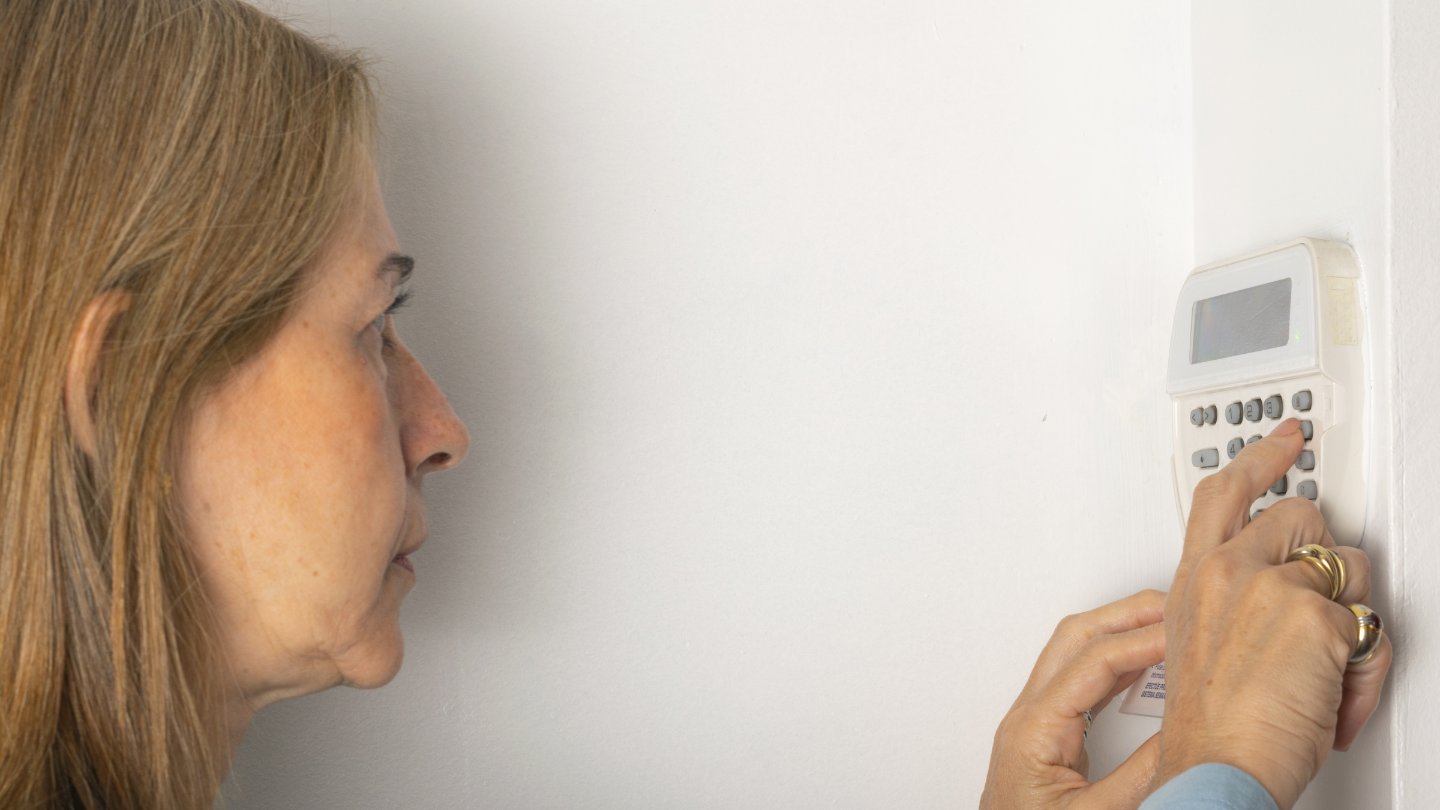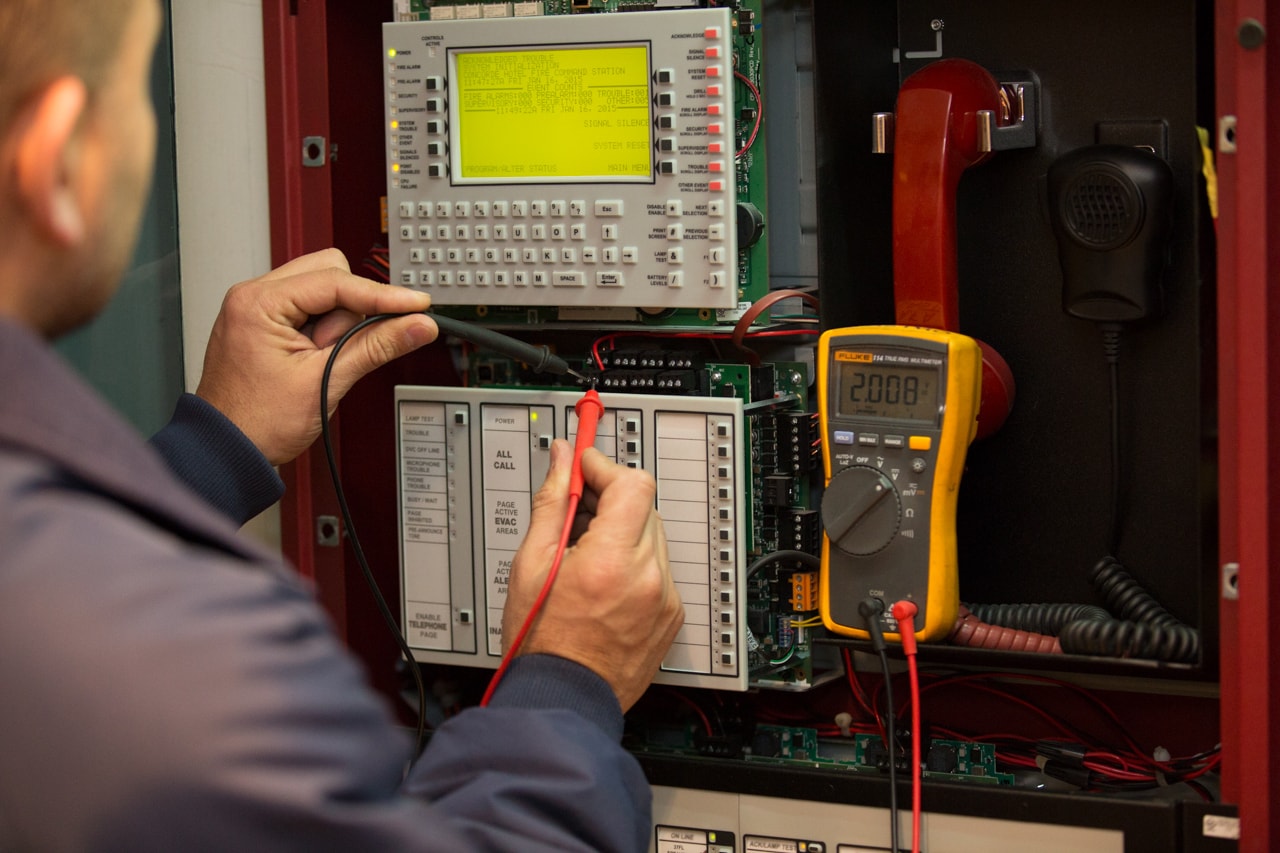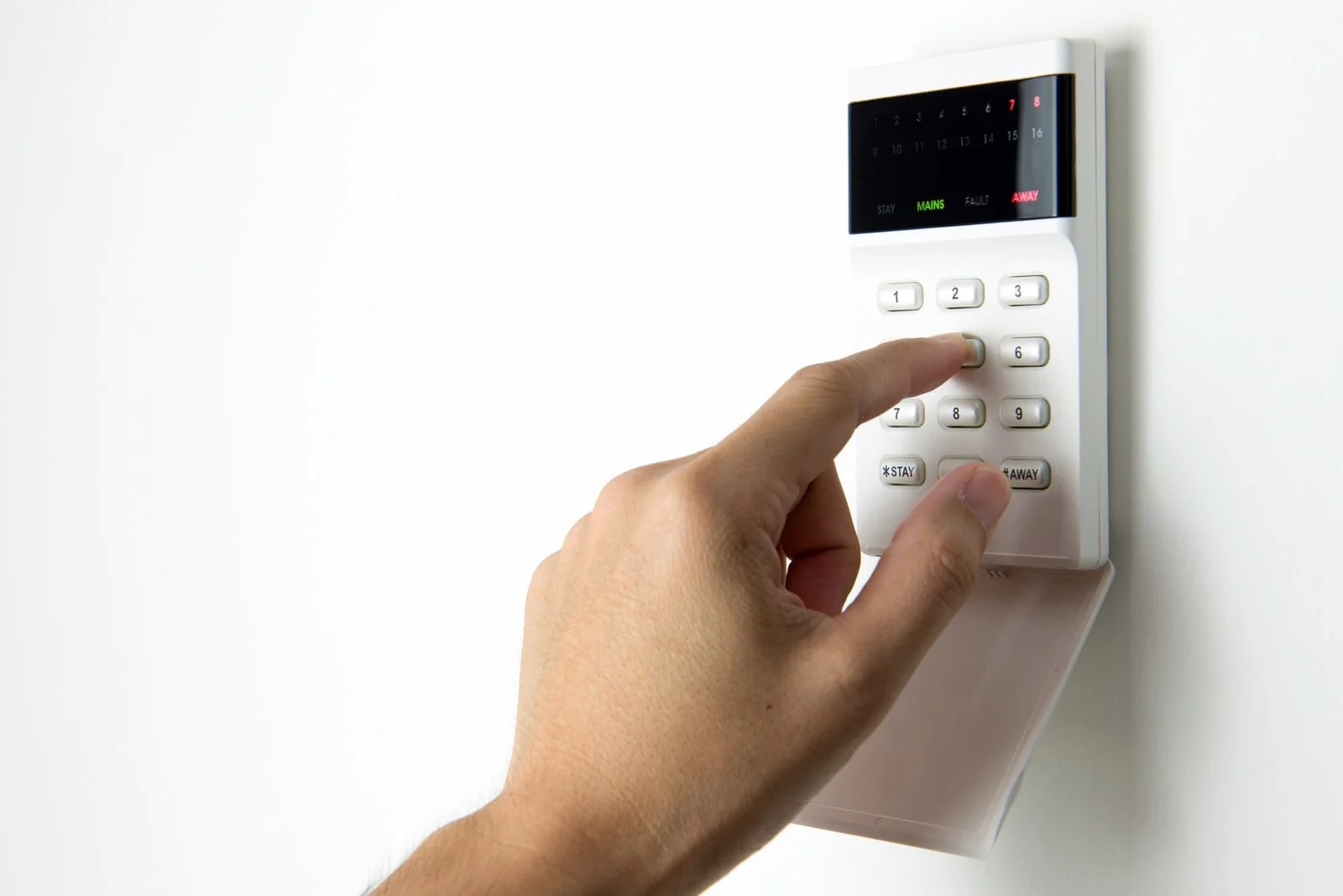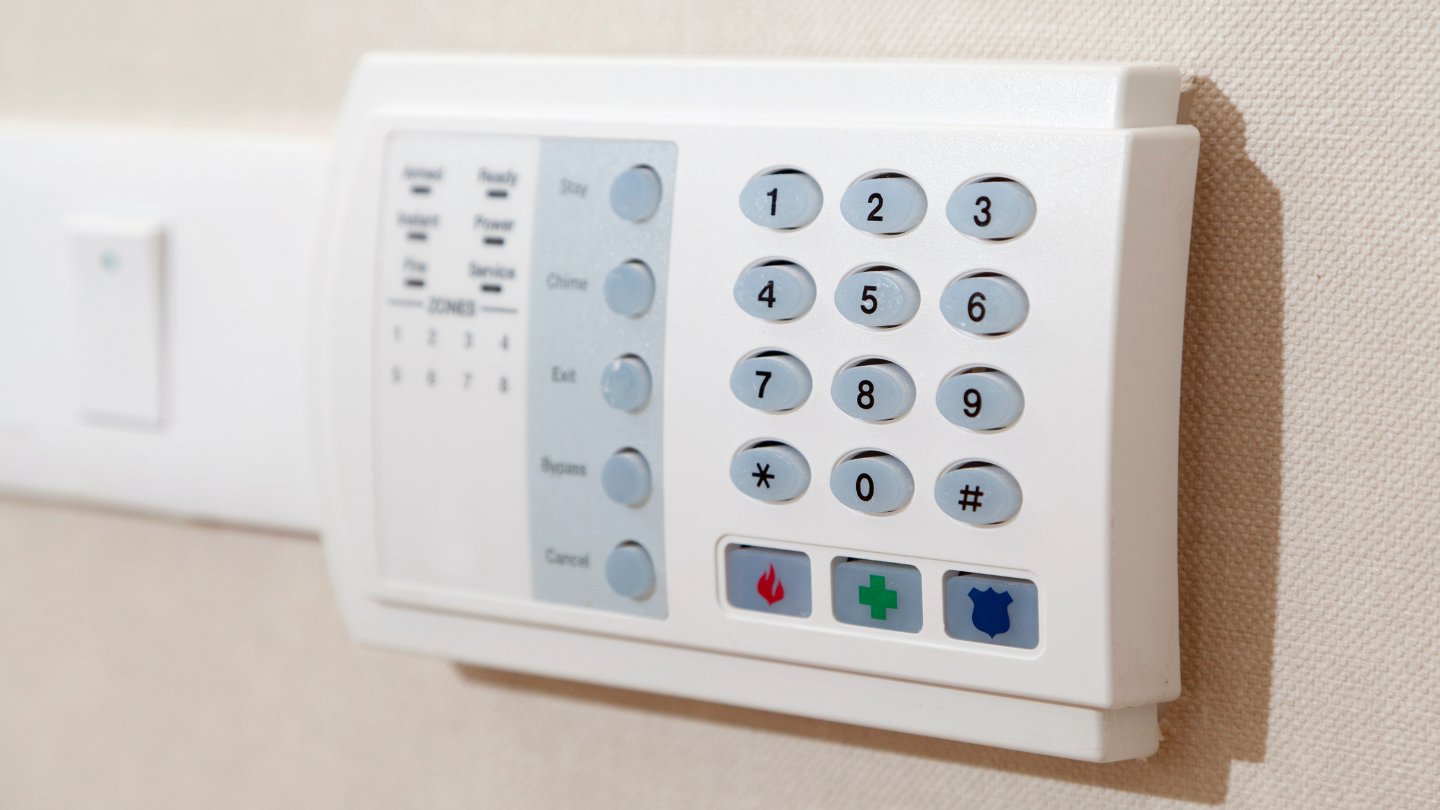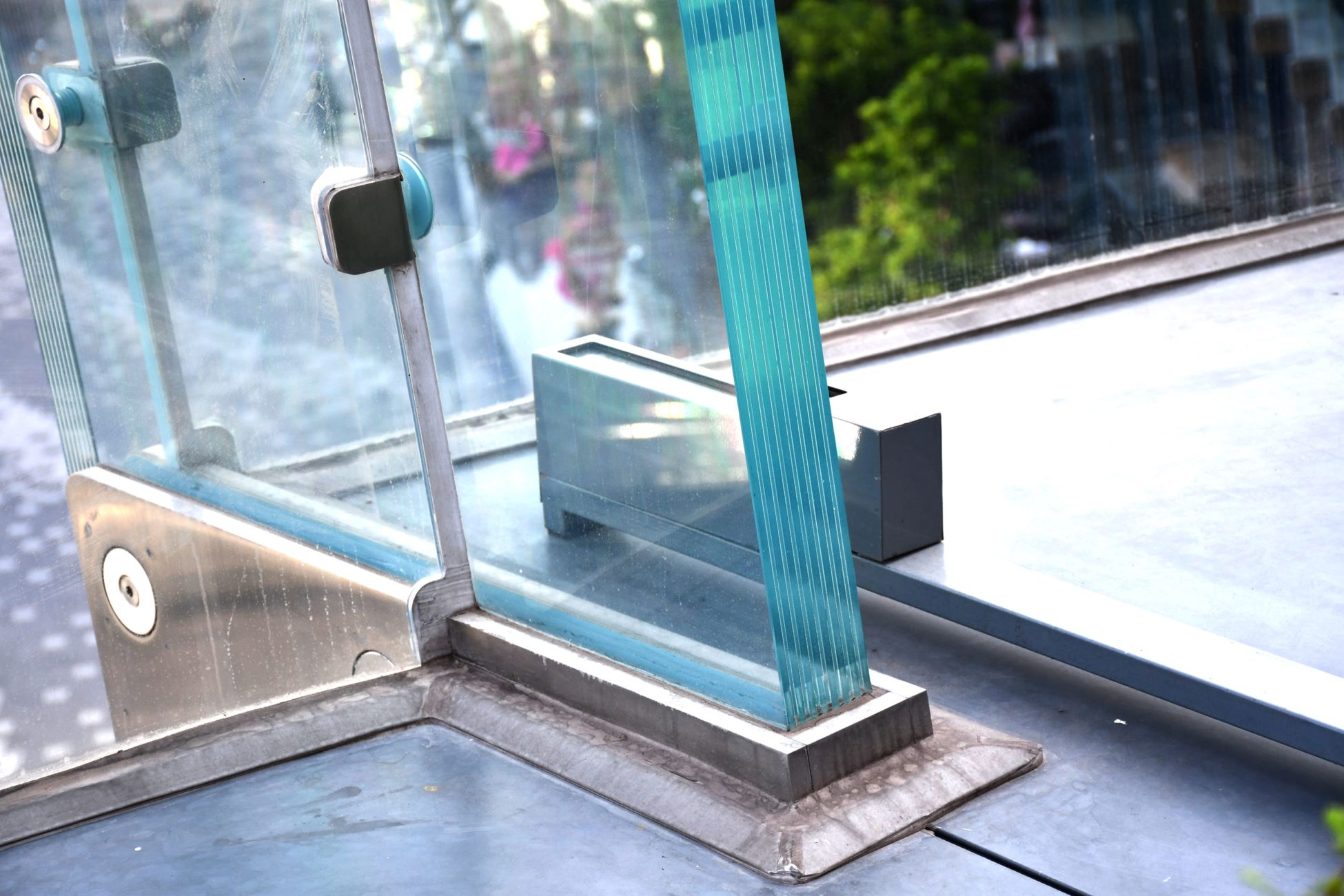Home>Home Security and Surveillance>What Impact Do Home Alarm Systems Have On Insurance
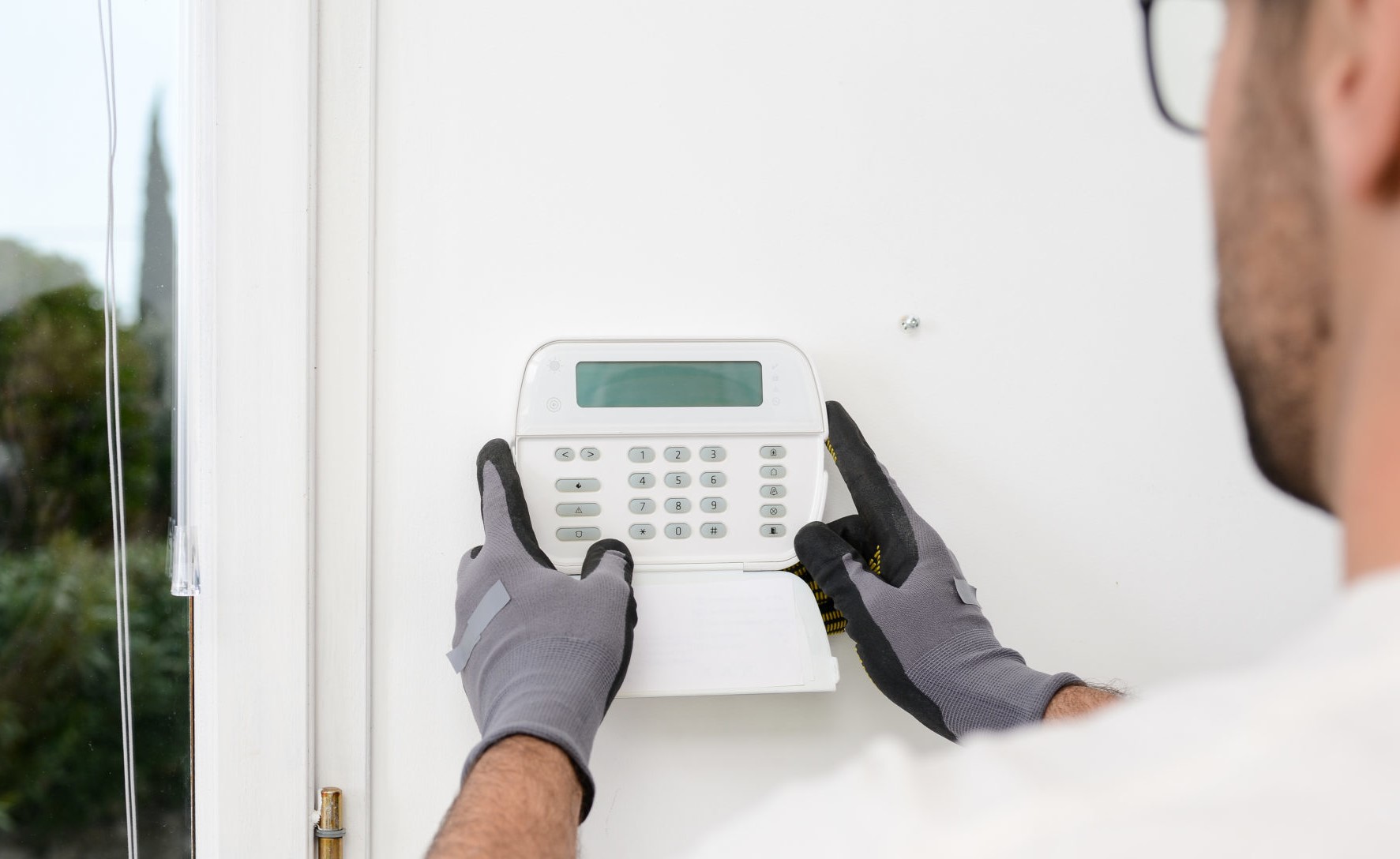

Home Security and Surveillance
What Impact Do Home Alarm Systems Have On Insurance
Modified: March 6, 2024
Home alarm systems can significantly lower your insurance premiums. Discover the impact of home security and surveillance on insurance rates to protect your home and wallet.
(Many of the links in this article redirect to a specific reviewed product. Your purchase of these products through affiliate links helps to generate commission for Storables.com, at no extra cost. Learn more)
Introduction
Welcome to the world of home security and surveillance. In today’s fast-paced society, ensuring the safety and protection of your home and loved ones is of paramount importance. One of the most effective ways to secure your home is by installing a home alarm system. Not only does it provide round-the-clock surveillance and protection, but it can also have a significant impact on your home insurance rates.
Home alarm systems have revolutionized the way we safeguard our homes. Gone are the days of relying solely on traditional locks and deadbolts. Now, advanced technology has given us access to a wide range of home security options, from basic burglar alarms to comprehensive smart home integrated systems.
In this article, we will explore how home alarm systems can affect your home insurance rates and the factors that influence these premiums. We will also discuss the types of home alarm systems recognized by insurers and the installation and maintenance steps necessary to maximize their effectiveness. Additionally, we will provide insights into the steps you can take to obtain discounted insurance rates with the installation of a home alarm system.
Whether you are a homeowner or a renter, understanding the impact that a home alarm system can have on your insurance coverage is crucial. Insurance companies recognize the added security provided by these systems, which can ultimately lead to lower premiums and more comprehensive coverage for your home.
So, let’s dive into the world of home alarm systems and insurance and discover the numerous benefits that come with securing your home.
Key Takeaways:
- Installing a home alarm system can potentially lower insurance premiums by providing added security and reducing the risk of theft and damage to your home.
- To maximize insurance discounts, choose a recognized home alarm system, fulfill specific requirements, and regularly update your policy to reflect the security enhancements provided.
How Home Alarm Systems Can Affect Insurance
Home alarm systems play a significant role in reducing the risk of theft, vandalism, and property damage. Insurance providers recognize the value of these systems in protecting your home, which can result in reduced insurance premiums. Here are a few ways home alarm systems can affect your insurance coverage:
- Deterrence: The presence of a visible home alarm system acts as a deterrent to potential burglars. Insurance companies consider this added layer of security when assessing the risk of your property. A home protected by an alarm system is less likely to be targeted, reducing the likelihood of filing a claim.
- Improved response time: Alarm systems are designed to alert homeowners, authorities, or security companies in the event of a breach. Their ability to detect intrusions quickly can minimize the extent of damage and potential losses. Insurance providers value this prompt response and may offer lower rates as a result.
- Reduced risk: By investing in a home alarm system, you are taking proactive measures to mitigate risks. Insurance companies view this as a responsible homeowner behavior, leading to lower premiums. The reduced risk of burglaries, fires, and other incidents translates to savings for both the homeowner and the insurance provider.
- Enhanced safety features: Modern home alarm systems often come equipped with additional safety features such as smoke detectors, carbon monoxide detectors, and water leak sensors. Insurance providers recognize the value of these added safety measures and may offer discounts or incentives for having them installed.
- Remote monitoring capabilities: Many home alarm systems now offer remote monitoring options, allowing homeowners to keep a watchful eye on their property even when they are away. Insurance companies appreciate this added layer of surveillance and may consider it when determining insurance rates.
It is important to note that the extent of the impact on your insurance rates will vary depending on the insurance provider and policy. Some providers may offer substantial discounts, while others may offer more modest savings. Nonetheless, installing a home alarm system is a wise investment that not only provides peace of mind but also has potential long-term financial benefits.
In the next section, we will delve into the factors that influence insurance premiums and how they interact with home alarm systems.
Factors that Influence Insurance Premiums
When it comes to determining your home insurance premiums, insurance providers take several factors into consideration. These factors help them assess the level of risk associated with insuring your property. While the presence of a home alarm system can positively impact your premiums, it is important to understand the other factors that can influence the cost. Let’s explore some of these key factors:
- Location: The location of your home plays a significant role in determining insurance premiums. High-crime areas or areas prone to natural disasters may result in higher premiums. However, having a home alarm system in place can help offset these increased risks and potentially lower your premiums.
- Home Value: The value of your home is another important factor insurance providers consider. Higher-value homes typically require higher coverage limits, resulting in higher premiums. However, the added security provided by a home alarm system can help mitigate risks associated with valuable properties, potentially leading to lower premiums.
- Deductibles: The deductible is the amount you are responsible for paying before your insurance coverage kicks in. Generally, higher deductibles result in lower premiums. However, insurance providers may offer additional discounts if you have a home alarm system installed, further reducing your premiums.
- Claims History: Your claims history can impact your insurance premiums. Homeowners who have a history of filing frequent claims may face higher premiums. On the other hand, having a home alarm system in place can deter potential incidents, leading to a cleaner claims history and potentially lower premiums.
- Property Features: Certain property features, such as swimming pools, trampolines, or outdated electrical systems, can increase the risk of accidents and claims. Insurance providers take these factors into consideration when determining premiums. However, the presence of a home alarm system can help counterbalance these risks by providing added security.
- Proximity to Fire Stations and Hydrants: The distance between your home and the nearest fire station and hydrants can impact insurance premiums. Homes located closer to fire protection services often receive lower rates due to the reduced response times and increased chances of minimizing fire damage. While a home alarm system does not directly impact this factor, the added safety features like smoke detectors can contribute to a lower risk of fire-related incidents.
It is important to review your insurance policy and discuss these factors with your provider to fully understand how they influence your premiums. By assessing your unique situation, insurance providers can determine the most accurate premiums for your home.
Next, we will explore the potential discounts you may be eligible for when you have a home alarm system installed.
Discounted Insurance Rates with Home Alarm Systems
Installing a home alarm system not only provides added security and peace of mind, but it can also lead to discounted insurance rates. Insurance companies recognize the benefits of having reliable security measures in place and often offer incentives to homeowners who invest in home alarm systems. Let’s take a look at some of the potential discounts you may be eligible for:
- Burglar Alarm Discount: Many insurance providers offer a discount specifically for having a burglar alarm system installed. This discount reflects the reduced risk of break-ins and theft, resulting in lower premiums.
- Smoke Detector Discount: Smoke detectors are a standard feature in most home alarm systems. By having these detectors in place, you can qualify for a smoke detector discount on your insurance premiums. This reflects the added safety measures in case of a fire.
- Fire and Carbon Monoxide Alarm Discount: Homes equipped with fire alarms and carbon monoxide detectors are seen as safer and less prone to serious damages and health risks. Insurance companies may offer additional discounts for these safety features, further reducing your insurance premiums.
- Smart Home Integration Discount: With the rise of smart home technology, many home alarm systems now offer integration with other smart devices such as door locks, cameras, and thermostats. Insurance providers acknowledge the added convenience and security these systems provide and may offer discounts for having a fully integrated smart home security system.
- Monitored Alarm System Discount: Insurance companies often provide discounts for homes with professionally monitored alarm systems. These systems are connected to a monitoring service that alerts authorities in the event of a breach. The swift response and increased security provided by monitored systems can result in reduced insurance rates.
To take advantage of these potential discounts, it is important to consult with your insurance provider. They can inform you about specific requirements, documentation, and certifications necessary to qualify for the applicable discounts. Additionally, they can guide you in choosing a home alarm system that meets their criteria.
Remember, discounted insurance rates are not guaranteed, and the amount of the discount will vary depending on your provider and policy. It is essential to compare insurance quotes and policies to ensure you are receiving the most competitive rates and receiving the maximum benefits from your home alarm system.
In the next section, we will discuss the types of home alarm systems recognized by insurers and their effectiveness in securing your home.
Types of Home Alarm Systems Recognized by Insurers
Insurance companies recognize various types of home alarm systems that provide different levels of security and protection. These systems are designed to deter potential intruders, detect unauthorized entry, and alert homeowners or monitoring services in case of emergencies. Let’s explore some of the commonly recognized types of home alarm systems:
- Burglar Alarms: Burglar alarms are the most basic and widely recognized home security systems. They consist of sensors placed on doors and windows to detect unauthorized entry. When a breach is detected, the alarm sounds, often accompanied by flashing lights, to alert homeowners and potentially scare off intruders.
- Wireless Alarms: Wireless alarm systems have gained popularity due to their easy installation and flexibility. These systems use wireless sensors and detectors connected to a central control panel, eliminating the need for complex wiring throughout the house. Insurance providers often recognize and offer discounts for wireless alarm systems due to their effectiveness in securing homes.
- Smart Home Security Systems: Smart home security systems integrate multiple devices and technologies to provide comprehensive home protection. These systems can include smart door locks, surveillance cameras, motion sensors, and even home automation features. Insurance companies acknowledge the advanced security capabilities of smart home systems and may offer discounts for homeowners who have them installed.
- Monitored Alarm Systems: Monitored alarm systems are connected to a monitoring center that provides 24/7 surveillance. In the event of an alarm activation, the monitoring center receives the signal and contacts the homeowner and appropriate authorities. These professionally monitored systems offer an added level of security and are often recognized by insurance companies for their effectiveness in protecting homes.
- Video Surveillance Systems: Video surveillance systems often consist of multiple cameras strategically placed around the property to monitor for unusual activity. These systems can range from basic setups to advanced, high-resolution cameras with features like motion detection and remote viewing. Certain insurance providers offer discounts for homeowners with video surveillance systems, as they act as a deterrent and provide valuable evidence in the event of a break-in or other incidents.
It is important to note that insurance providers may have specific requirements regarding the type and features of home alarm systems they recognize. Before installing a system, it is recommended to check with your insurance provider to ensure that your chosen system qualifies for any potential discounts or benefits.
Next, we will discuss the importance of proper installation and maintenance of a home alarm system for optimal effectiveness.
Read more: Why Have An Alarm Systems
Installing and Maintaining a Home Alarm System
Installing a home alarm system is a crucial step in securing your home and potentially lowering your insurance premiums. Here are some key considerations for the proper installation and maintenance of a home alarm system:
Installation:
When installing a home alarm system, it is recommended to follow these steps:
- Assessment: Begin by assessing your home’s security needs. Determine the areas that require protection, such as entry points and vulnerable areas. This assessment will help you choose the right type and number of sensors and detectors for your system.
- Choose a reputable provider: Research and select a reputable alarm system provider or security company. Look for a provider with a proven track record, positive customer reviews, and reliable customer support.
- Consider professional installation: While some home alarm systems can be installed by homeowners, it is worth considering professional installation. Professional installers have the expertise to properly install the system, ensuring optimal effectiveness and minimizing any potential issues.
- Strategic placement of sensors: Install sensors and detectors in strategic locations throughout your home. This includes doors, windows, and other vulnerable entry points. Follow the manufacturer’s instructions for proper installation and ensure that all components are functioning correctly.
- Test the system: Once installation is complete, thoroughly test the system to ensure all components are working correctly. Familiarize yourself with the system’s features and functionalities, such as arming and disarming, and understand how to respond to any alerts or activations.
Maintenance:
Regular maintenance is essential to keep your home alarm system in optimal working condition. Here are some maintenance tips to consider:
- Regularly test the system: Conduct regular tests to ensure that all sensors, detectors, and alarms are functioning correctly. This includes testing the communication between the system and monitoring services if applicable.
- Replace batteries: Regularly check and replace the batteries in your alarm system components, such as sensors and control panels, as needed. Weak or dead batteries can compromise the effectiveness of the system.
- Keep components clean: Dust and debris can interfere with the proper functioning of sensors and detectors. Clean these components regularly to ensure optimal performance.
- Update system software: If your home alarm system has software or firmware updates available, make sure to install them. These updates often include bug fixes and security enhancements that improve the system’s overall performance.
- Notify your insurance provider: Inform your insurance provider once you have installed and activated your home alarm system. Provide them with any necessary documentation or certification to ensure you receive any applicable discounts or benefits.
By following these installation and maintenance guidelines, you can ensure that your home alarm system performs at its best, offering you the highest level of protection and potentially reducing your insurance premiums.
In the next section, we will provide steps you can take to obtain insurance discounts with your home alarm system.
Installing a home alarm system can lower your insurance premiums. Contact your insurance provider to see if they offer discounts for having a monitored security system.
Steps to Take for Insurance Discount with Home Alarm Systems
If you have installed a home alarm system, you may be eligible for insurance discounts. To ensure you receive the maximum benefits and discounts from your insurance provider, consider taking the following steps:
- Research insurance providers: Start by researching different insurance providers and policies. Look for providers that offer discounts specifically for home alarm systems. Compare rates, coverage options, and customer reviews to find the best fit for your needs.
- Understand the requirements: Contact your insurance provider and inquire about the specific requirements for obtaining an insurance discount with your home alarm system. They may have specific certification or documentation requirements that need to be met to qualify for the discount.
- Provide necessary documentation: Gather all the necessary documentation related to your home alarm system, such as installation certificates, proof of monitoring service, and any other relevant paperwork. Submit these documents to your insurance provider as per their instructions.
- Update your policy: Review your current insurance policy and make sure it reflects the installation of your home alarm system. Provide your insurance provider with all the necessary details of the system, including its features and the level of monitoring and security it provides.
- Request a home inspection: Some insurance providers may require a physical inspection of your home alarm system to verify its installation and effectiveness. Coordinate with your insurance provider to schedule the inspection, if necessary.
- Review and update coverage: Work with your insurance provider to review your coverage options and ensure that your policy adequately reflects the security enhancements provided by your home alarm system. This may include increasing coverage limits or adding additional coverage for valuable belongings.
- Conduct yearly reviews: Regularly review your insurance policy and update your provider regarding any changes to your home alarm system. For instance, if you upgrade or modify your system, inform your insurance provider to ensure continuous eligibility for any discounts or benefits.
By following these steps, you can maximize the insurance discounts available to you and ensure that your insurance policy accurately reflects the security enhancements provided by your home alarm system.
It is worth noting that insurance discounts and eligibility criteria may vary among insurance providers. Therefore, it is essential to communicate with your specific provider to understand their requirements and procedures for obtaining discounts with your home alarm system.
In the final section, we will address some commonly asked questions about home alarm systems and insurance.
Read more: What Type Of HVAC System Do I Have
Frequently Asked Questions about Home Alarm Systems and Insurance
Here are some commonly asked questions about home alarm systems and their impact on insurance:
- Do all insurance providers offer discounts for home alarm systems?
- Will installing a home alarm system reduce my insurance premiums?
- What types of home alarm systems are recognized by insurers?
- Are there any specific requirements to qualify for insurance discounts with a home alarm system?
- Do I need professional installation for my home alarm system to be recognized by insurers?
- Do insurance discounts for home alarm systems apply to renters as well?
- Will my insurance premiums be reduced immediately after installing a home alarm system?
- Is it necessary to inform my insurance provider about my home alarm system?
No, not all insurance providers offer discounts for home alarm systems. However, many providers do recognize the value of these systems and offer discounts to homeowners who have them installed. It’s important to research different insurance providers and policies to find the ones that offer discounts for home alarm systems.
Installing a home alarm system can potentially lower your insurance premiums. These systems provide added security and reduce the risk of theft and damage to your home, which insurers consider when determining your premiums.
Insurers recognize various types of home alarm systems such as burglar alarms, wireless alarms, smart home security systems, monitored alarm systems, and video surveillance systems. Each system provides different levels of security, and insurers may offer discounts based on the type and features of the system.
Insurance providers may have specific requirements to qualify for discounts with a home alarm system. These requirements can include installation certifications, proof of monitoring service, and documentation related to the system’s features and effectiveness.
While professional installation is recommended for optimal effectiveness and proper coverage, some insurance providers may recognize DIY installations as well. It’s best to consult with your insurance provider to understand their specific requirements for recognition.
Yes, insurance discounts for home alarm systems can apply to renters as well. Many insurance providers offer renter’s insurance policies that may include discounts for having a home alarm system installed in the rental property.
The impact on your insurance premiums may not be immediate after installing a home alarm system. Your insurance provider will likely need to update your policy and assess the system before applying any discounts or adjustments to your premiums.
Yes, it is necessary to inform your insurance provider about your home alarm system. Providing them with the necessary documentation and details about the system ensures that you receive any applicable discounts and that your policy accurately reflects the security enhancements.
If you have any specific questions or concerns about home alarm systems and your insurance coverage, it is recommended to contact your insurance provider directly. They can provide you with the most up-to-date information and guidance based on your unique situation.
To conclude, installing a home alarm system can not only enhance the security of your home but also potentially reduce your insurance premiums. It’s a wise investment that offers both peace of mind and financial benefits.
Conclusion
Home alarm systems play a crucial role in protecting your home and loved ones from potential threats. Not only do these systems provide round-the-clock surveillance and deterrence, but they can also have a significant impact on your insurance rates. By investing in a reliable home alarm system, you can potentially lower your insurance premiums while enjoying enhanced security and peace of mind.
When it comes to insurance coverage, there are several factors that influence your premiums. However, insurance providers recognize the added protection and reduced risk that come with home alarm systems. Factors such as deterrence, improved response time, and enhanced safety features all contribute to minimizing potential losses and reducing insurance claims.
To achieve discounted insurance rates, it’s important to choose a recognized home alarm system and fulfill any specific requirements set by your insurance provider. Research different providers, understand their policies, and provide the necessary documentation to ensure you receive all applicable discounts. Regular maintenance and updates to your insurance policy will also help maximize the benefits of your home alarm system.
Whether you opt for a basic burglar alarm system, a wireless system, or a comprehensive smart home security system, the presence of any recognized and reliable home alarm system can make a significant difference in both your home’s security and your insurance coverage.
Remember to communicate with your insurance provider, keep them informed about your home alarm system, and review your coverage regularly. By maintaining an open line of communication and staying proactive, you can ensure that your insurance policy accurately reflects the security enhancements provided by your home alarm system.
Installing a home alarm system is a smart investment that not only protects your property but may also lead to long-term financial benefits by potentially lowering your insurance premiums. Take the step towards securing your home and enjoy the added peace of mind provided by a reliable and recognized home alarm system.
Frequently Asked Questions about What Impact Do Home Alarm Systems Have On Insurance
Was this page helpful?
At Storables.com, we guarantee accurate and reliable information. Our content, validated by Expert Board Contributors, is crafted following stringent Editorial Policies. We're committed to providing you with well-researched, expert-backed insights for all your informational needs.

